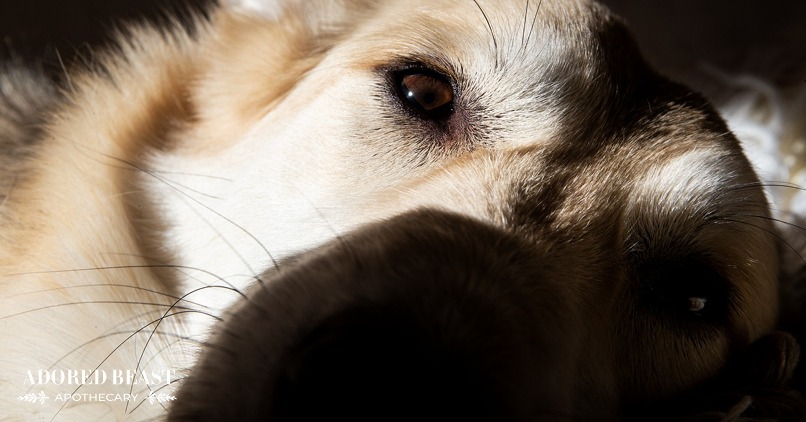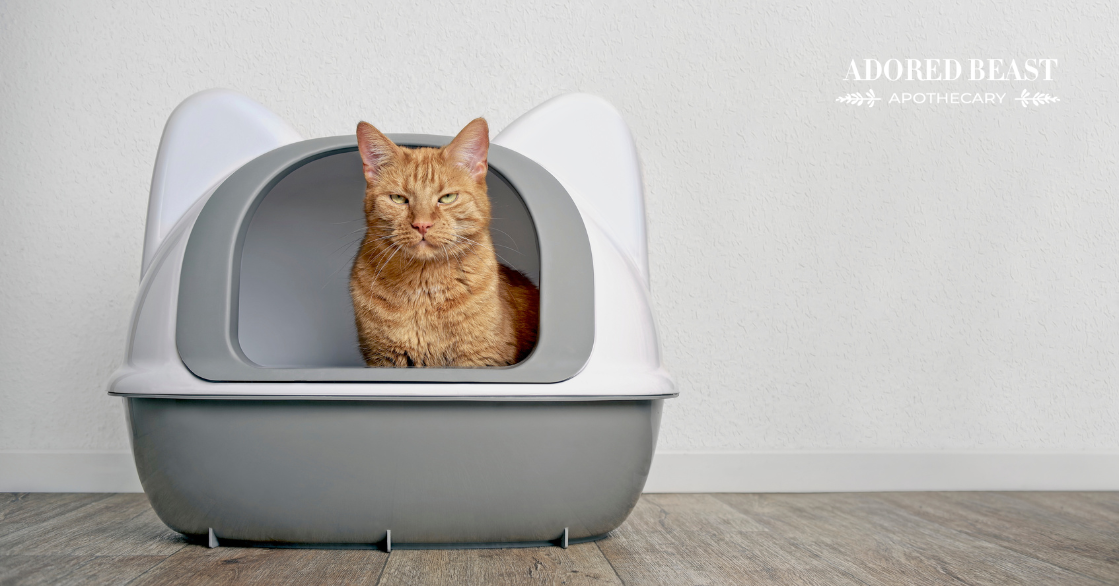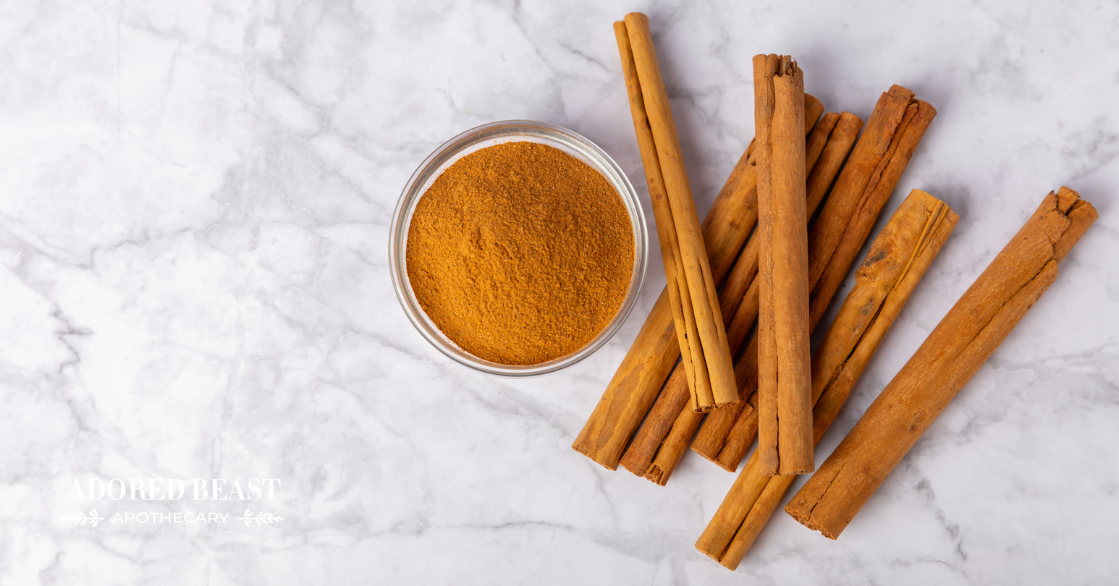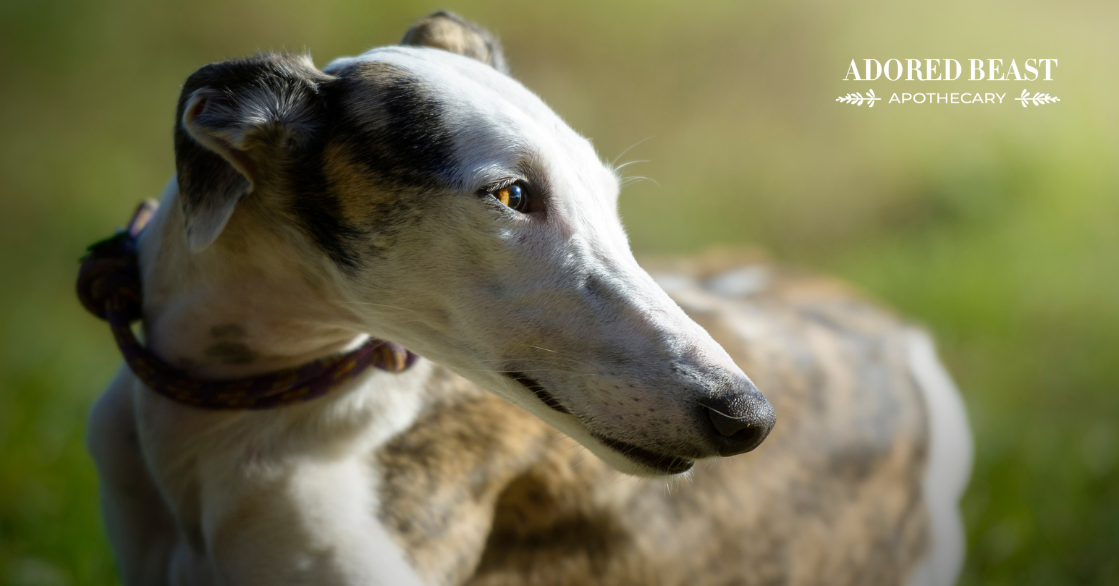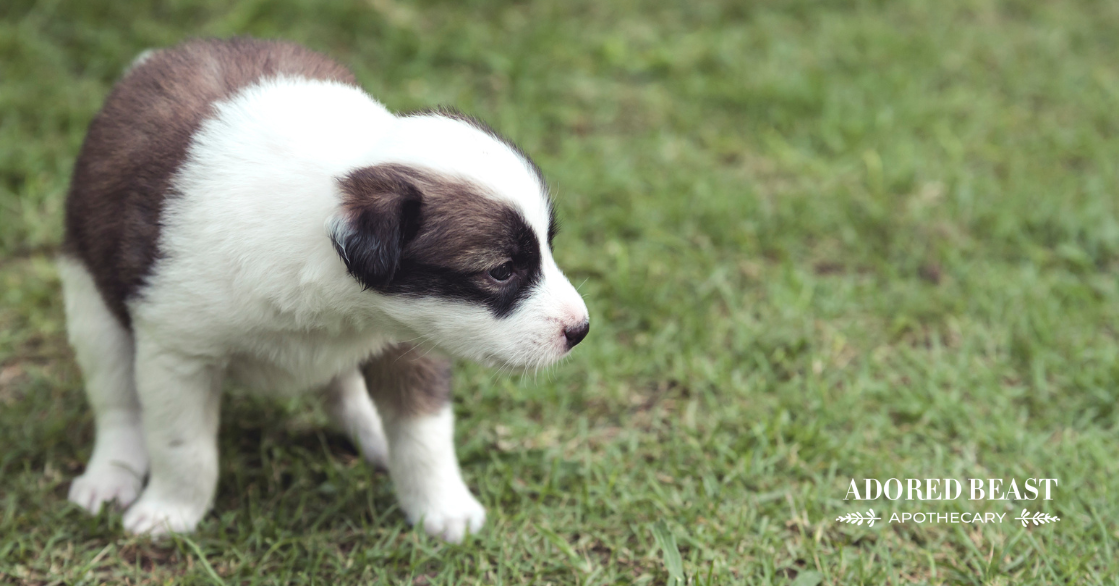What is pain? How philosophical do you want to get? How many pages do I have?
In my 25 years of practicing navigating animal pain, believe me, I’ve seen a lot of different kinds of pain that our pets go through.
A lot of times people, when they think of pain, they think of musculoskeletal pain, like joint pain or arthritis, but that’s far from the only type of pain our animals can have.
Heartburn, stomach pain, pancreas pain, headaches, toothaches, skin irritation, gastric ulcers, IBD… these are all real issues that create pain in your animal, without you really being able to see the pain like you can with musculoskeletal pain, like limping.
First and foremost, getting ahead of pain is what we always want to try and do. And to do that, we need to learn to recognize the symptoms of pain.
Signs of Animal Pain and What it Can be Associated With
In dogs and cats, signs of allergies can often be a sign of pain. For example, dogs licking their paws, overgrooming, licking their elbows, their forearms, chewing on their groin, can all be signs of pain. With cats, it’s often overgrooming, or pulling their hair out. For horses, it could be cribbing, weaving, or chewing wood on stalls.
These can all be signs of internal organ pain – stomach, intestines, the gut, pancreas – pain we don’t see.
If you can catch these early and understand your animal’s personality, you might also notice a reduction in their eating habits – eating less, being pickier, or drinking more water. Horses are the opposite – they often want to eat more.
Don’t automatically assume it’s an allergy. Identify if there was some kind of pattern prior to that – a change of diet, the use of topical flea products, a vaccination, an antibiotic, major stress, etc. – something that would interfere with the microbiome of the gut lining, that then can create disease or imbalance in their organs. This could be what caused those “allergy” symptoms, but which might actually be pain.
These symptoms often warrant a vet visit, and typically your vet will deal with the pain likes it’s an allergy. This can lead to an allergy diet, or an anti-itching or immune suppressive drug. Unfortunately, this allergy protocol can, exponentially, make the deeper disease that is causing the pain from whatever organ or system it’s coming from, worse. You’re further damaging the microbiome…
What’s crazy is, this can actually turn into an allergy, because it destroys the gut lining, and the pain then also turns into an allergy.
Animal pain is not something to be taken lightly, or treated with a blanket anti-inflammatory. You really have to dig down to find out where the pain is coming from.
Because our animals can’t talk, they can’t tell us “oh I have heartburn” or “I have a pain in my stomach.” In order to soothe themselves they’ll show those other symptoms. Or, we don’t often think about a dog with a headache, or ear pain, or a cat or horse with a headache. But they do! They’re just not able to tell us.
Other Symptoms of Animal Pain
Other symptoms you might see are:
- digging or nesting
- change in regular sleeping habits (sleeping more or less)
- panting, especially worse at night
- restlessness, especially at night
- eating dirt or inedible objects – you’ll see this with dogs or horses. It’s almost like taking an antacid
How your animal is sleeping is also a good indication. When an animal is stretched out, relaxed, or on their back, those are signs of a deep, easy sleep. However, if they curl their feet in, and tuck their front feet underneath, or curl up into a tight ball, they just aren’t relaxed. That’s a sure sign of pain. Even if they’re eating and pooping normally, but they’re constantly tight, in that curled up position, not relaxed, that’s a sign that something’s brewing.
Sleep is huge when it comes to pain. It’s just as important for our animals as it is for us. And research shows that so many of us are sleep deprived. When we see cats and dogs who aren’t in relaxed sleeping positions, we know something is wrong, and usually it’s a sign of pain.
These symptoms can be pain that is preceding a disease like inflammatory bowel disease, chronic or acute pancreatitis, gastric reflux, horses with ulcers. There’s a lot that won’t show as “typical” pain.
With joint and arthritis pain, there are different ways your animal might show that – just subtle signs – having to take a running jump to get on the bed, couch, chair, or in the car, taking the stairs more slowly, carefully walking or not wanting to walk on tile or slippery floors, changes to sleep positions or areas because it hurts to jump up or go under a table… Obvious ones are limping when going for a walk and not having the stamina, whimpering, not putting their feet squarely on the floor. Watch when they’re standing: are they standing square? Is their back straight? Are they leaning to one side?
Paying attention to your animal is THE BEST thing you can do for pain. If you can find quiet symptoms early, you can derail pain and chronic disease early. You just have to try and put your head into animal mode. If we can see that pain, we can help.
Dealing with Pain When you Identify It
From a perspective of holistic medicine and dealing with pain, you always want to do less is more from the beginning, so if you need the big guns later on down the road, you always have something to reach for.
When we reach for those anti-inflammatories and steroids right away, at the beginning, we run into 2 problems:
- Because of the havoc these drugs play on the internal organs, they can’t be used long term.
- They don’t address the root cause of the pain, the reason your animal is sore to begin with, and so they don’t fix the problem and it eventually just gets worse and worse (e.g. arthritis)
There are so many things you can start with – homeopathy, nutritional therapy, acupuncture, chiropractics, laser therapy, herbal medicines – that will actually help with the underlying problem.
But – and this is so important – if you don’t have a holistic vet, or the means to be looking at all those different things, you can’t leave your animal in pain!!
If you have a holistic vet and your animal is in a severe amount of pain, for example crying out in pain, not eating, pacing… you have to do something! Don’t wait too long to see if acupuncture or homeopathy is working. For example, homeopathy, if correctly prescribed, should work faster than even a drug -you should see the pain reducing in as little as a 1/2 hr. But if you don’t, my belief is you need to get them out of pain. Use the drug, and then immediately start with the additional modalities to get your animal off the drug as quickly as possible and for sure not on it long term. But please make sure you’re addressing the pain right away.
Holistic medicine, for me, is not anti-drug. It’s getting to the root cause and addressing it. It’s not putting a bandaid on it. Yet it’s also not “give something and watch and wait.” I always alleviate pain. For me, I know that different modalities work, often faster than drugs, but if you don’t have someone who is able to walk you through that, you have to make sure your animal is not in pain. If you don’t, their cortisol levels increase and more times than not their bodies go into fight or flight, which makes healing so much harder.
Supporting Drugs with Holistic Medicine
If you do use drugs, make sure that you’re supporting the body with holistic medicine to derail any potential side effects. Look at the side effects of the drug, and right away, make sure you’re using the appropriate modalities to help the body.
- Herbs that have soothing qualities that help to coat the lining of the gut: slippery elm, marshmallow root, aloe, licorice root.
- Pre and probiotics – because antibiotics, steroids, NSAIDs, destroy gut bacteria.
- Herbs like milk thistle and dandelion root, as well homeopathy that will help to address and support the liver.
- Homeopathics – nux vomica and phosphorus to try and detox the body.
In my opinion, if your animal is in pain, start homeopathic aconite 200C and arnica 200C right away. This can often allow you to work with your vet to find the underlying issues without having to resort to drugs. If there’s any kind of pain, it won’t matter, with aconite and arnica you don’t have to worry that you’re going down the wrong rabbit hole with those.
Preventing Pain
With animal pain, prevention is always the thing.
Try to have an emergency kit. If you can get ahead of inflammation when inflammation first happens, you can even help to prevent many forms of arthritis. Prevention is crucial here, with agility dogs for example, or any high-impact activity. Even if you see a tumble at the dog park and cringe and go “that must have hurt,” chances are it did. Give aconite and arnica afterwards, as both are natural anti-inflammatories to derail that inflammation that could change the body long term. That one crush could cause a lifetime of arthritic changes.
Stress and loneliness can also cause pain. Not allowing your animal to have fun, and be connected, and spend time with their family, causes stress. And stress causes disease. Animals can get stress-induced pancreatitis, inflammatory bowel disease, gastric reflux, and diabetes. And, there is a ton of research showing cancer and chronic disease in people being stress-induced.
In fact, isolation is one of the #1 reasons for animal pain. Think about it – you leave them alone all day long, then you feel guilty, so you take them to the park for an hour and throw the ball. This taxes their body because it goes from 23 hours of relaxing to an hour of intense activity. The body isn’t meant to do that, so we have to be aware. It’s a much better approach to have a few short walks during the day before the full-out ball or Frisbee cardio or go for a warm up forest walk before games begin 🙂
Holistic medicine forces you to become present so that you can listen to your own body, its own needs. You have to be present. The same goes with our animals.
If you really do want to have that mindset of being healthy, and using nutrition and plant medicine to keep your animal healthy, it is key to be able to notice symptoms prior to them getting sick, or right as the sickness (or in this case, pain) begins. And it takes practice, it takes commitment, it takes noticing.
You can’t be distracted, you have to be present. And this strengthens your bond! Not only is it beneficial for your animal’s health and longevity and happiness, to be observant and present, it’s another gift that our animals give to us. They teach us to be that way in an age when everyone is seeking distraction and in turn create a healthier, more balanced, life for us too.

